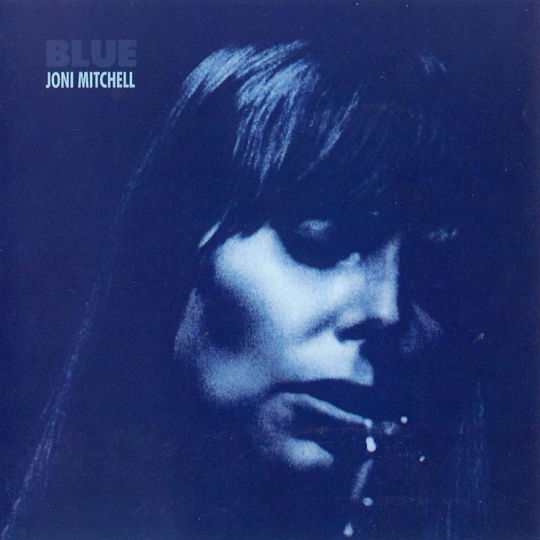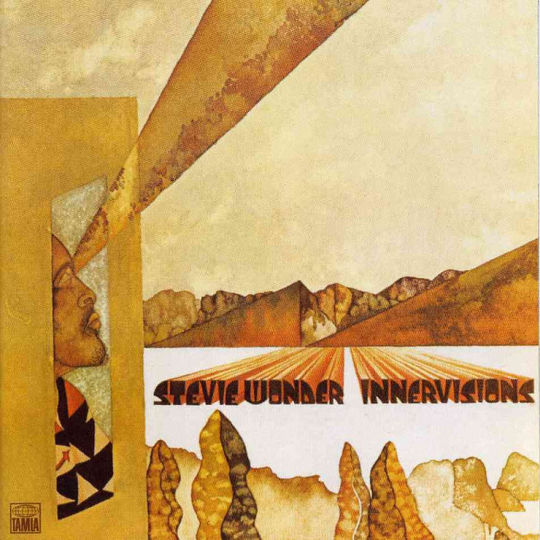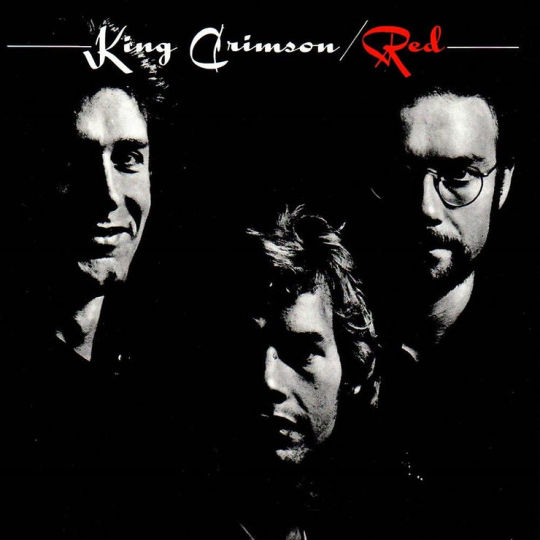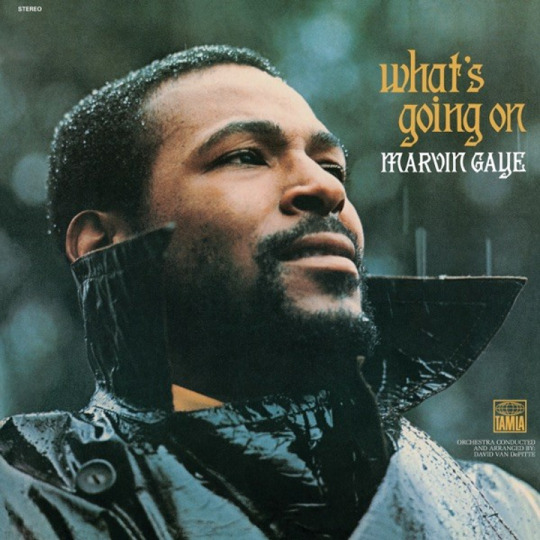#she doesn't excel in the vocals. or the lyrics. or the instrumentals (for whatever she does w those)
Explore tagged Tumblr posts
Text
It's About Time: The 70s
The 1970s, in terms of broader musical shifts and trends, is a pretty low key decade for the art form of music. But what it lacks in experimentation or new genres and styles, it makes up for in the cultural impact of the music that did come out and make a splash. I think there is one album here that I hadn't heard of going into this project and that is the only album that I wouldn't be able to argue is an absolute classic. It isn't a radical time in music, it would be disingenuous to sell it as such, but it is absolutely a time of great artistic mastery nonetheless. So let's talk about some masterpieces.
Note: As usual, this post was written for my website, chaosincurate.blog, and is formatted better there, as a result of my simply having more tools over there. If you want to read it here on Tumblr, that's perfectly fine, all the words will be the same. But if you're willing to check out the website, I would greatly appreciate it. And if you subscribe to the blog over there you'll get a notification when a new post goes live there, which is usually a little bit sooner than when it comes here. Thanks!
Nick Drake - Pink Moon

Kind of like: Bob Dylan, Elliott Smith Songs to try: Pink Moon, Things Behind the Sun
This is easily the strangest of the albums I've talked about so far. Not necessarily by virtue of what it is, but rather what it isn't. I'm not particularly familiar with folk and singer-songwriter stuff -- it's not my favourite genre, though I do like some stuff from it and am aware of some of the more popular artists and albums -- but I would have said that they are defined by their lyricism first and foremost. This album, though, doesn't really focus all that much on lyrics compared to the similar albums that I've written about for this project so far. That's not to say that what is said isn't interesting -- it definitely is -- its just that not much is said to begin with. A lot of the songs are really short, and some are dominated by instrumentals.
All that being said though, that isn't a failure of the album. If it were, it wouldn't be noteworthy. There are plenty of albums that fall short of it's genre's expectations. The strange part is the fact that the album instead relies on very minimalist, folky instrumentals to carry so much of its meaning, and that it succeeds in doing so. That aspect of the album is as mind-boggling as it is awe-inspiring, and is absolutely the standout feature of the record to me.
In many ways this album is the greatest testament to musical minimalism I've heard to date. It is a strange listen, and one that takes a second to adjust to, but when you do it's really quite a remarkable thing to behold. It's an obvious album to recommend to fans of the genre, but I also think that people who really like grand landscapes in music to become engulfed in will get a lot out of this album, and may be surprised by Nick Drake's ability to do that with so few musical elements.
Joni Mitchell - Blue

Kind of like: Bob Dylan, Leonard Cohen Songs to try: Blue, California, The Last Time I Saw Richard
Joni Mitchell brings us back to very familiar ground for folk/singer-songwriter music, with an album that excels at the fundamentals instead of rewriting them, and man does she excel here.
The unique characteristic of Blue that stands out most to me is the way that the vocal melodies seem to be bent to fit the words Joni Mitchell had in mind instead of the far more common opposite approach, without ever feeling awkward. Something about her style allows you to notice the fact that, at points, the melodies don't seem to quite fit, but that never becomes a fault of the album. Maybe its just that clear that the lyrics are worth it, or maybe it contributes to (and benefits from) the conversational, confessional feel that permeates this album. Whatever it is, it does wonders for the artistic identity of this album, and it makes it resonate all the more because of it too.
Another interesting element to this album is its relationship with sadness. As you might imagine given the name of the project, its themes are pretty dour, and thats nothing new. But something I really appreciate about the lyrics here is that it doesn't wallow in that sadness for a moment. The album exists within sadness, but with the goal and desire of leaving it and with mind paid to better times of the past too. It may sound like a small thing, but so much of the music that explores sadness doesn't seem to mention or even allude to happiness, and when it is done, it feels a lot more sincere and real while also making the sadness more impactful by contrast.
If you're a fan of folk/singer-songwriter music, you've heard this album already. If you're looking to become a fan, this album may well rival Bob Dylan as the go-to starting point for explorers of the genre.
Stevie Wonder - Innervisions

Genre: Soul, funk Songs to try: Higher Ground, Living for the City, Visions
I'm sure I've talked before about albums being difficult to talk about, and feeling as if there isn't much to say about them, but it is particularly frustrating when that happens with an album that you really like and appreciate. Unfortunately, I'm finding that to be the case here.
The issue definitely isn't with the quality of the music, which is incredible throughout it's entire runtime. I think its more about the sense of purpose this album has, or rather doesn't have, as far as I can tell. By which I mean most albums at this point in time that are highly acclaimed seem to have something very unique about them, something that only that album did up to that point, something rare, or some really interesting theme that they stick to. Here though, Stevie Wonder doesn't seem to feel compelled to explore anything new and instead sticks to refining the fundamentals. And those fundamentals are expertly refined, and, again, it is a great album, but it's a difficult album to discuss at length.
Maybe there is something about this album that I'm missing, in which case, feel free to let me know, but as far as I can tell, this album is mostly a great representation of soul and funk, arguably one of the best, so if you're wanting to dive into music in that realm, this is a very good call for that.
King Crimson - Red

Kind of like: black midi, Pink Floyd Song to try: One More Red Nightmare
I got real unlucky with this and Innervisions being back to back, because yet again I find myself understanding why an album here is great, but failing to understand its appeal to the extent of it being one of the top 10 albums of a pretty strong decade. For a notable example, I was surprised that an album like Black Sabbath's Paranoid didn't make the cut, which feels wrong considering albums like this feel less significant to me (although I can't speak to my personal preference having only listened to Red at time of writing).
Frustratingly too, all I can think to speak on with this album applies to In the Court of the Crimson King from the last decade way better. It's paranoid, and sprawling, while demonstrating a patience and a comfort with long instrumentals, but if you were looking for that, their previous album does a better job in my opinion, and I'm not sure how this album would appeal to someone in a way that Crimson King doesn't also do. Maybe there is something to be said for this album being more of a straightforward rock sound, but that feels like a minor deviation.
Unfortunately, I feel like I've failed to fully understand this album's appeal, so for the second time in a row, take this with a grain of salt and if you find someone who loves this album, listen to them over me, but I would personally only recommend this to someone who has listened to Crimson King (and maybe their later album Discipline too) and wants more from the band.
Miles Davis - Bitches Brew

Kind of like: The Jimi Hendrix Experience, Kind of Blue, The Black Saint and the Sinner Lady Song to try: Bitches Brew
Now this one I get, even if it'll take more listens to fully digest. This album, even to this day, remains very difficult to explain. It is an experimental and psychedelic album that is such a departure from the Miles Davis sound I was used to that, for the longest time, while I was somewhat familiar with both albums it hadn't really registered with me that Bitches Brew and Kind of Blue were made by the same person. Of course having properly listened to both I can see some resemblance, but even now I understand how I could make such a strange oversight. I genuinely believe that most moments on this album sound more like a song from Jimi Hendrix or some other psychedelic rock artist. The classic Miles Davis fingerprint is always there, but you have to be looking for it at times, whereas the experimentation and deviation jumps out at you constantly.
I think if I were to try to sum up the album's identity in a sentence it would be "jazz embracing modernity on its own terms". The album feels modern, even to this day to some extent, but it doesn't feel like it compromises the essence of jazz to do so, which as we've come to find out in the years since this album came out, is no easy task and it takes a genius with a strong connection to the genre and its culture to navigate that challenge as gracefully as Miles Davis does here.
So when it comes to the question of who this album is for, its for anyone who likes jazz, but especially those who felt a disconnect with the classics on the basis of them showing their age. It has been 55 years since this has dropped and this classic barely has a visible wrinkle on it's face.
Pink Floyd - The Dark Side of the Moon

Kind of like: David Bowie, The Beatles, Led Zeppelin Songs to try: Money, The Great Gig In the Sky, Time
Okay, I'm going to need you to bear with me on this one, because at first it might seem like I'm saying something that I don't mean to, but my feelings on this album are difficult to describe.
Growing up a music fan in the UK, I saw this album cover everywhere. I was always hearing about how otherwordly the music was, and how the cover was a perfect representation of it, how it marked a massive turning point in rock music, etc. I even heard that its supposed to line up really well with The Wizard of Oz, I think. The point is, especially here in the UK I'm sure, this album isn't just an album, its a cultural symbol. A cultural symbol which, ironically eclipses the music itself.
Despite that though, I still hadn't listened to it up until I listened to it a few days to a week ago as of writing this, for this series specifically. So when I finally did, it was a very strange experience. I'm not sure exactly what I was expecting out of the album, but it's almost as if I was shocked to find that it was, at the end of the day, just an album, like any other. Made of wiggly air and words.
Now for the clarification, that isn't really a reflection on the album's actual quality. I think the issue is after all this time and all I've heard about it, I expected it to extend beyond the confines of an album somehow, but it obviously doesn't do that. After a few listens now, I've found I've progressively started to appreciate it more and more as I distance myself from those weird expectations. Even when I first listened I wasn't even close to disliking it, but there was a fog over it that is clearing more and more with every listen.
So who would I recommend this to? Basically, anyone that is interested in rock music. Long time fans of the genre that missed it, or people just starting out, it's a must-listen, even if only to have an opinion on it, but just know that your first listen might be affected by the weight of historic cultural significance.
David Bowie - The Rise and Fall of Ziggy Stardust and the Spiders from Mars

Kind of like: Velvet Underground, Declan McKenna, The Clash Songs to try: Moonage Daydream, Starman, Hang on to Yourself
I've known and loved this album for years at this point, so when I saw that I was writing about this next I thought it'd be a cakewalk. I know the album like the back of my hand at this point, and I've been in this sort of musical sphere for a while, so I was feeling confident that I'd be able to speak about this easily, but I found myself struggling at the very first hurdle: What other stuff does this album sound like? Even now I'm not confident with the artists listed, and after looking specifically for others, I'm not really comfortable drawing strong parallels to any of them. That is very odd for an album this old, influential, and familiar to me.
I think the thing about this album is that Bowie takes aspects from a lot of disparate sources, and has an acquiantanceship with musical convention (which applies across his career) which is just distant enough to leave an outstanding impression while also being easy to engage with. That acquiantanceship in particular helps him to become an incredibly influential musician, arguably creating, helping to create, or bringing into the mainstream several different genres over the course of his career while also avoiding total replication. Even going through the "Inspired by David Bowie" playlist on Apple Music, all of them take noticeable inspiration from him, but only a few really sound like him at all.
All that being said, this is yet another must-listen rock album. It's one of the first to really tie together any sort of narrative (even if it does so somewhat poorly) and it has a perfect, almost unnoticeable balance between having a retro sound and existing outside of time entirely. Its a really interesting listen, but it always stays simple too, which I think is the beauty of Bowie's music. Whatever level you enjoy it on, it will give you something.
Marvin Gaye - What's Going On

Kind of like: Stevie Wonder, Isaac Hayes Songs to try: What's Going On, Mercy Mercy Me (The Ecology), Inner City Blues (Make Me Wanna Holler)
At it's core, What's Going On is a message of unity around simple truths as solutions to the worlds ills in the face of overcomplicated philosophies that undermine progress. That philosophy is present in the album's title and on the singer's face on the cover as much as it is in the music itself. And it is really quite impressive how well Marvin Gaye manages to sell you on this philosophy from a number of angles while rarely retreading ground.
This album suggests that civil rights matters are simple: we should just love and care for all as we'd care for one of our own; war is similarly simple: love ought to conquer hate; the climate crisis is simple: appproach the environment with care and responsibility. There are far more examples than just those too. In fact each track is its own acknowledgement of the simplicity of the solution to problems that we misrepresent as tricky.
The profound simplicity is easy to write off as only simplicity if you aren't paying attention, but this is absolutely one of those albums that give back everything you give it for the most part. If you approach it like an excellent piece of art and philosophy, it will reward you as such, but if you treat it like a dime a dozen soul album that extends itself beyond it's capabilities, that's all it will be.
As such, if you are in a position to treat this album with the reverence it deserves, I would highly recommend it. If you don't think you can approach it with an open and curious mind though, I would leave it be. I can absolutely see it feeling like a waste of time in that case. Maybe if you're new to the genre check out something by someone like the artists in the "kind of like" section first so you can engage properly with the music itself and not the broader genre, because that first listen could be the most important for this one.
Pink Floyd - Wish You Were Here

Kind of like: Led Zeppelin, Queen, David Bowie Song to try: Shine On You Crazy Diamond, Pts. 1-5
Unlike the prior Pink Floyd album The Dark Side of the Moon, there was no adjustment period necessary for this album. Part of that is surely down to the fact that this album's reputation and popularity isn't nearly as overwhelming, but I also think it is just a far more cohesive album with a clear theme in mind that grounds the whole experience: the destructive nature of capitalist influence on art and artists.
Shine On You Crazy Diamond depicts a loved one being hollowed out by (it is implied) the industry that is attached to something he loves, which of course is infamously the story of the band's former frontman Syd Barrett. Then the next three tracks detail the rise of the band into the seedy heaven that is the music industry, from early idolization of rockstars from youth, to the seduction by shady and duplicitous record label execs, and finally a regretful reflection on the journey and how it's changed them. That then sets the stage for the final parts of Shine On You Crazy Diamond within a new context: one that understands the hollowed out artist may have been wise to have gotten out when they did.
Maybe I just haven't had enough time with their previous album, but this one felt so much clearer in it's meaning and it's purpose to me, and as a result I can understand the hype around it much more immediately. It's a powerful narrative by masters of their medium, and it fully deserves to be heralded as one of the best albums of the decade, if not all time. It is often indulgent, but never over-indulgent, and is one of the finest examples of a rock album that I can think of.
Stevie Wonder - Songs in the Key of Life

Kind of like: Michael Jackson, Luther Vandross Songs to try: Sir Duke, I Wish, As
Since starting this blog, I have always tried to stay positive about albums and not really criticize them unless it was extremely necessary or hard to resist. And to be clear, I'm not sure I could really criticize this particular album if I wanted to, but it is interesting to note that, often, when I have a strong desire to criticize something it's for being too long and, despite this album being even longer than an album I have criticized for it's length on this blog, I absolutely love it and think it's length is absolutely warranted, finally proving its not size that matters, its how you use it.
Part of that is down to the other failings of that other album making it harder to get through, but part of it is also just that this (double) album actually has a reason to be this long. The quality of the music isn't sacrificed at all, for one, and you would have a hard time trimming this down to something more palatable without sacrificing an amazing song in the process. But there's also the nature of it claiming to be an album about something as large as life.
Now, I don't think you can call this a concept album about life, because frankly every song is about life in some way, but it does do some work to justify itself in that way. Most notably, the first half has a more pessimistic tone, then following the birth of a child in the first song from the second half it's as if the narrator percieves the world through the eyes of an optimistic child, or is suddenly imbued with a strong desire to make the world a better place.
I'm not sure my description of the change is spot on, but the point is there is some sense of cause and effect to the album, and a clear change in perspective from an individual in the first part of the album, to a parent and a member of something greater in the second. It's exactly what the album needed to give it an extra push that keeps it from being boring.
Although I've already said it a lot, I believe this is another instance where I'd recommend the album to pretty much anyone who is interested in music. It is a massive moment in music history and an absolute triumph within the art form. Simple as that.
Final thoughts on the 70s
On the previous post, I made a brief distinction between those who pioneered and those who perfected. Listening to the best this decade has to offer, I am of the belief that it had a shocking number of artists in the latter camp. Most albums on this list are near-perfect examples of the genres they inhabit: immortal classics that deserve to be remembered for the rest of time.
I'm particularly happy with this section of the It's About Time series because, with one exception, all these albums were albums that I didn't respect as much as I ought to have, or were new to me entirely and became a cherished part of my music history lexicon. It truly is about time I gave these albums the love they deserved. Roll credits.
#chaosincurate#ɸ It's About Time#ɸ It's About Time 70s#music#music recommendation#music reccs#Miles Davis#King Crimson#Nick Drake#Joni Mitchell#Stevie Won#Pink Floyd#David Bowie#Marvin Gaye
0 notes